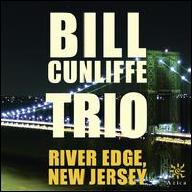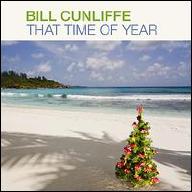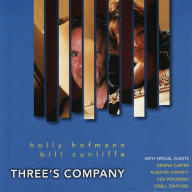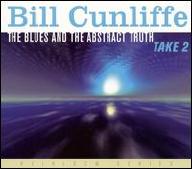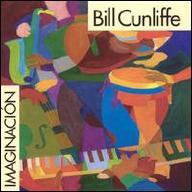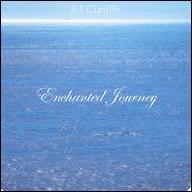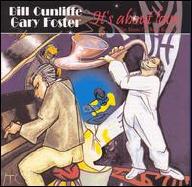Born William Henry Cunliffe, Jr. in 1956 in Andover, Massachusetts, he was introduced to music at young age by his mother, a talented pianist. Growing up, Cunliffe took private lessons while attending Phillips Academy, and listened to a varied mix of classical, jazz, pop, and rock artists. Later, he attended Wesleyan University, and played in a local rock band. During this period, a friend introduced him to the music of pianist Oscar Peterson, a discovery that ignited his enduring love of jazz. Although Cunliffe had flirted with notions of studying medicine and psychology, by his senior year he was dedicated to music. He transferred to Duke University, where he studied with pianist Mary Lou Williams, and later earned his master's degree from Eastman School of Music.
Upon graduating, he accepted a position teaching at Central State University in Wilberforce, Ohio, and left after two years to join the Buddy Rich Big Band as drummer and arranger. Following his time with Rich, Cunliffe returned to Southern Ohio, where he played for a time as the house pianist at the Greenwich Tavern in Cincinnati, working with a regular flow of touring musicians like Freddie Hubbard, Joe Henderson, Woody Shaw, James Moody, and others. Relocating to Los Angeles in 1989, he entered and won the prestigious Thelonious Monk Institute of Jazz International Piano Competition. That same year, he paired with drummer Bernie Dresel for Porcupine, the self-titled debut of their crossover jazz ensemble. From there, he began his long association with the Clayton Brothers and the Clayton-Hamilton Jazz Orchestra, touring and recording with them for several years.
As a leader, Cunliffe debuted with 1993's A Rare Connection, a swinging, straight-ahead session featuring reedman Bob Sheppard, trumpeter Clay Jenkins, trombonist Bruce Paulson, bassist Dave Carpenter, drummer Peter Erskine, and percussionist Kurt Rasmussen. He followed up a year later with A Paul Simon Songbook, which found him investigating the songs of one of his favorite pop writers alongside saxophonist Gerald Albright, guitarist Thom Rotella, and others. More well-received albums followed, including the bossa nova-tinged Bill in Brazil, 1998's Bud Powell-themed Bill Plays Bud, and the 1990 solo piano session Satisfaction. He also returned to his work with Porcupine, continued his work the Clayton Brothers, and made session dates with flutist Holly Hofmann, the Jazz at the Movies Band, Bob Curnow, and more. Also in the '90s, Cunliffe garnered two Emmy Award nominations for Best Original Song for his work on the daytime soap operas Another World and Guiding Light.
Over the next decade, Cunliffe continued to expand his output, releasing several live albums, and debuting his Latin jazz ensemble with 2005's Imaginación. He also earned first of several Grammy Award nominations for his arrangement of "Angel Eyes," off trombonist Alan Kaplan's 2002 album Lonely Town. There were records with saxophonist Gary Foster, drummer Joe La Barbera, Eden Atwood, and Phil Kelly, among others. In 2010, Cunliffe took home his first Grammy Award win for his arrangement of "West Side Story Medley" off The Resonance Big Band Plays Tribute to Oscar Peterson. More Grammy nominations followed, including for his arrangements of Terell Stafford and the Temple University Orchestra's 2012 album Overture, Waltz and Rondo for Jazz Piano, Trumpet and Orchestra. He also paired with clarinetist Mort Weiss for an album, collaborated with clarinetist Gary Gray on Rhapsody in Blue Plus More Gershwin, and played on Michael Bublé's Nobody But Me.
In 2017, Cunliffe delivered Bachanalia, which featured big-band versions of compositions by J.S. and C.P.E. Bach, Falla, Prokofiev, and more. He then collaborated with harmonica player Hendrik Meurkens on 2018's Cabin in the Sky. The holiday-themed Christmas in the Dog House arrived the following year. ~ Matt Collar, Rovi


